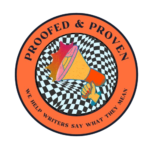I don’t need to tell you that publishing academic work is competitive and demanding. Add on the pressure of publishing to secure a new research position or qualifying for tenure, and you may find yourself overworked, underprepared, and tearing your hair out.
Whether you’re submitting to an illustrious journal or reviewing your unpublished dissertation for the umpteenth time, the clarity, coherence, and credibility of your writing can make or break your success. This is where professional academic editing becomes indispensable.
But why is editing so essential (and 🫰expensive💸), and how can it help elevate your work?
The Challenges of Self-Editing
Every writer, no matter how experienced, hits a wall where they can no longer objectively evaluate their work. After a million revisions, you’re going to overlook errors in grammar, syntax, and structure (especially if you’re not trained in finding them in the first place… like an editor is). These issues can undermine even the most groundbreaking research because your peer reviewers, publishers, and ultimately your audience get distracted at best and disdainful at worst. That’s embarrassing and perfectly avoidable.
What’s more, self-editing often falls short in addressing common pitfalls:
- Unclear or overly complex language: Academic writing often leans toward dense phrasing. An editor can help you write for your audience.
- Inconsistent citations: Properly formatting references is a meticulous task that requires attention to detail. Automated tools and the copy-and-paste method don’t always meet guidelines.
- Lack of focus in introductions and abstracts: These sections hook the reader and clearly convey the research’s purpose and significance. A good intro may be the difference between your manuscript getting published and getting chucked in the bin.
For researchers whose first language isn’t English, these challenges are even more pronounced. Making your article as polished and readable as possible can dramatically increase the likelihood of acceptance by a journal or publisher. Professional academic editors bridge this gap by refining your manuscript into a publishing-ready piece.
“When they start caring ’bout the likes and the clicks” #Chika
A professional editor’s main goal is to improve your work while preserving your unique voice and research integrity. Here’s how they help:
- Improving Clarity and Readability Editors streamline convoluted sentences, make sure you have proper grammar and syntax, and improve overall readability. This makes it easier for acquisition editors or managing editors to say “Yes!” to your work.
- Adherence to Guidelines Journals and publishers have strict formatting and style requirements. Editors ensure your submission aligns with these, speeding up the publishing process. The fewer eyes that have to rake your piece for errors, the faster you’ll see your name in print.
- Crafting Compelling Introductions and Abstracts Have you ever noticed someone’s eyes glazing over as you describe your research? A professional editor can help craft an engaging introduction and abstract, drawing in both your audience and potential publishers.
- Objective Feedback Integrating peer review feedback can be a daunting task, especially when it feels like your work is under attack. An editor provides an objective perspective, helping you address criticisms without the emotional weight.
- Fine-Tuning Citations Honoring your fellow academics by properly citing their work is a cornerstone of research. Editors ensure citation accuracy and consistency, saving you from potentially embarrassing mistakes.
Why Not Just Use Editing Tools?
Tools like Grammarly and ProWritingAid are helpful for catching surface-level issues, but they fall short in addressing deeper problems like flow, structure, and academic rigor. In some cases, these tools introduce new errors or fail to understand the context of your writing. While they can serve as a starting point, nothing replaces the expertise of a human editor who can:
- Refine arguments for coherence and impact.
- Ensure your voice remains consistent.
- Identify inconsistencies and gaps that software might miss.
What to Expect from a Professional Editor
A good editor offers more than just grammatical fixes. They provide:
- Developmental Editing: Focused on big-picture issues like structure, flow, and argumentation.
- Line Editing: Refining grammar, syntax, and readability.
- Formatting and Citation Support: Ensuring compliance with style guides such as APA, Chicago, or AMA.
Investing in professional editing can be costly, but the returns—higher acceptance rates, faster publication, and a polished final product—are well worth it.
Take Your Writing to the Next Level
Publishing isn’t just about groundbreaking research; it’s about how effectively you communicate your findings. Professional academic editing enhances clarity, coherence, and credibility, giving your work the competitive edge it needs. If you’re ready to take your writing to the next level, let’s connect and make your research publish-ready.


